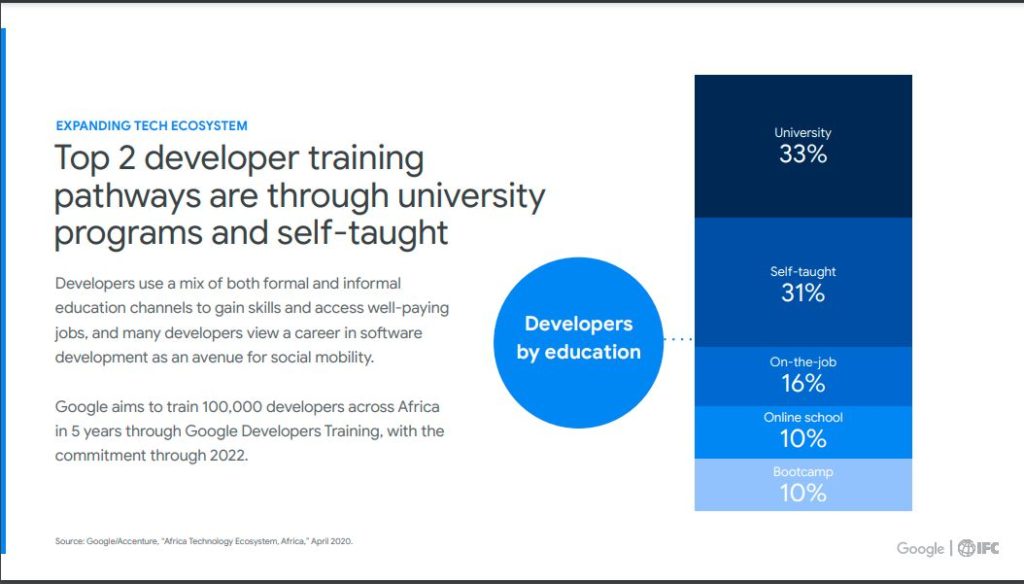If there is one sector that has been unsustainably failing to keep up with relentless changes in the current world, then it is the education sector. Learning institutions have continued to produce candidates whose skills are different from those needed in the job market.
In Africa, while Universities are crawling away from keeping up with the real world, learners are now forging new learning paths to achieve relevant skills. Thanks to the internet.
According to the e-Conomy Africa report by Google and World Bank’s IFC, universities produce 33% of software developers in the continent while 31% are self-taught developers, 16% learn while on the job, 10% from online schools, and 10% from Bootcamps. With this data, it is clear that universities need to step up the game.

Currently, Africa is home to 700 000 developers who view a career in software development as an avenue for social mobility. Most of them use informal education channels to gain skills and access to well-paying jobs
This begs the question of whether college is still worth it or not. In a world with increased access to free information, most learning institutions are facing the threat of running into irrelevance.
Today, Massive Open Online Courses (MOOCs) are becoming a popular choice for learners who want to advance their careers by taking free online courses that provide an affordable and flexible way to learn new skills.
However, many secondary schools and universities in Africa have not yet integrated digital infrastructures to embrace the growing digital space in the continent. Let alone updating their curriculums.
How can we bring real world experience in the classroom?
With the superhighway of disruptive changes in every sector, it is with no doubt that education planners are overwhelmed. Both students and their instructors should collaboratively work together to find what works and what doesn’t. This may include students suggesting courses that are important to them. Inviting corporates to train students with work-related skills. For universities, they can follow the example of Carnegie Mellon University that is setting up engineering qualifications for Africans in Africa.
Conclusion
There is an urgent need for educational reforms in Africa given the fact that the continent has millions of young, ambitious, and potential learners who are facing challenges to achieving quality and relevant education.
Universities need to stop living on past glory and start making sense of the current demands. Otherwise, it will be okay for people to forge their own path after obtaining basic, high school education.

